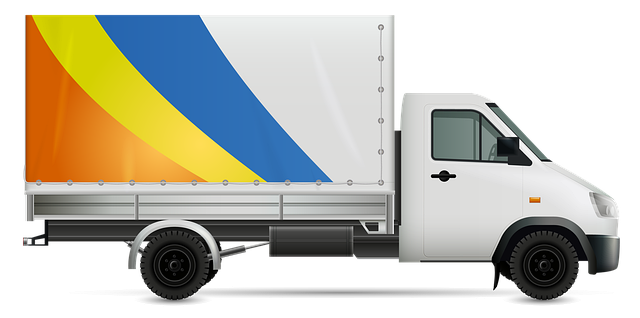When renting a truck, exploring the associated rental truck insurance is crucial to protect against financial risks. Policies vary from temporary truck rental coverage for short-term needs to comprehensive rental truck policies for frequent users. Key protections include liability coverage, property damage insurance, theft protection, and roadside assistance. Occasional renters should opt for temporary rented vehicle insurance, while businesses require specialized rental business truck insurance with liability, physical damage, and medical payments coverage. Always review policy details to understand inclusions and exclusions, ensuring adequate truck rental coverage for peace of mind.
In today’s world, whether you’re moving or transporting goods, renting a truck is often essential. However, understanding the intricacies of rental truck insurance can be complex. This comprehensive guide aims to demystify truck rental coverage, equipping you with knowledge about various policy options and your rights as a renter. From temporary truck insurance to rental truck liability coverage, we explore what’s available and who might need it. By the end, you’ll have a clearer picture of how to navigate rental truck policies and ensure adequate protection for both you and your rented vehicle.
- Understanding Rental Truck Insurance: Coverage Basics
- Types of Truck Rental Coverage: What's Available?
- Who Needs Temporary Truck Insurance?
- Navigating Rental Truck Policy: Your Rights and Responsibilities
Understanding Rental Truck Insurance: Coverage Basics

Understanding Rental Truck Insurance: Coverage Basics
When renting a truck or vehicle, it’s crucial to familiarize yourself with the rental truck insurance policy that comes with it. Unlike personal vehicle insurance, temporary truck insurance or rental truck policies offer distinct coverage options tailored for those who aren’t the primary owners of the asset. These policies typically include liability coverage, which shields you from financial responsibility in case of accidents or damage to others’ property. They also often cover loss or damage to the rented vehicle itself, offering peace of mind while you’re on the road.
The rental truck policy’s scope can vary widely, from comprehensive coverage that covers almost every eventuality to more limited options. It’s essential to read and understand what’s covered and what isn’t. For instance, some policies might exclude certain high-risk activities or cover only up to a specific dollar amount for damages. Knowing these specifics ensures you’re adequately protected during your rental period, providing a seamless and worry-free experience while navigating the world of truck rentals.
Types of Truck Rental Coverage: What's Available?

When renting a truck or vehicle, understanding the available insurance options is crucial to protect yourself from potential financial burdens. Rental truck insurance comes in various types, catering to different needs and preferences. One of the most basic forms is temporary truck insurance, which provides minimal coverage for short-term rentals. This is suitable for personal moves or one-time projects.
For those renting trucks frequently or running a rental business, comprehensive rental truck policies are recommended. These offer extensive protection, including liability coverage, which shields you from financial responsibility in case of accidents, and property damage insurance, ensuring your vehicle or others’ property is protected. Some policies also include theft protection and roadside assistance, providing added peace of mind for your rented vehicle.
Who Needs Temporary Truck Insurance?

Whether you’re a small business owner occasionally renting a truck or an individual moving houses, temporary truck insurance can offer much-needed protection. This type of insurance is designed for those who don’t own a vehicle but find themselves in need of one for a specific period. It’s not always necessary to purchase a full policy when renting, especially if your personal auto insurance covers certain aspects. However, understanding the gaps in coverage and having the right rental truck insurance can save you from significant financial burdens.
For instance, standard rental car policies typically exclude liability for damage or theft of the vehicle. They also may not cover business use or off-road driving. If you’re renting a truck to transport goods or equipment, a dedicated rental truck insurance policy ensures that any loss or damage during the rental period is covered. This is especially crucial for businesses relying on rented vehicles for daily operations.
Navigating Rental Truck Policy: Your Rights and Responsibilities

Navigating Rental Truck Policy: Your Rights and Responsibilities
When renting a truck or vehicle, understanding your rights and responsibilities regarding insurance is crucial. In many cases, rental agreements include some form of insurance coverage, but it’s important to know what’s covered and what isn’t. Typically, rental truck insurance provides basic liability protection, covering damages to property or injury to others caused by an accident. However, this coverage may have deductibles and exclusions, so reviewing the policy is essential.
It’s recommended to consider temporary truck insurance if your personal insurance doesn’t adequately cover rented vehicles. This ensures comprehensive protection during the rental period. Business owners operating a fleet of rental trucks should look into rental business truck insurance policies that offer liability coverage, physical damage protection, and medical payments for added peace of mind. By being informed about these aspects, you can make sure you’re properly protected while on the road in a rented vehicle.
When renting a truck or vehicle, understanding the intricacies of rental truck insurance is key to protecting your investment. By familiarizing yourself with the available coverage options and your rights under a rental truck policy, you can navigate this process with confidence. Whether you’re a business owner relying on temporary truck insurance or an individual renting for personal use, ensuring proper protection is essential. Remember, knowing what’s covered and what isn’t could save you from unexpected financial burdens down the road. Choose the right plan based on your needs and always review the rental truck policy thoroughly.
